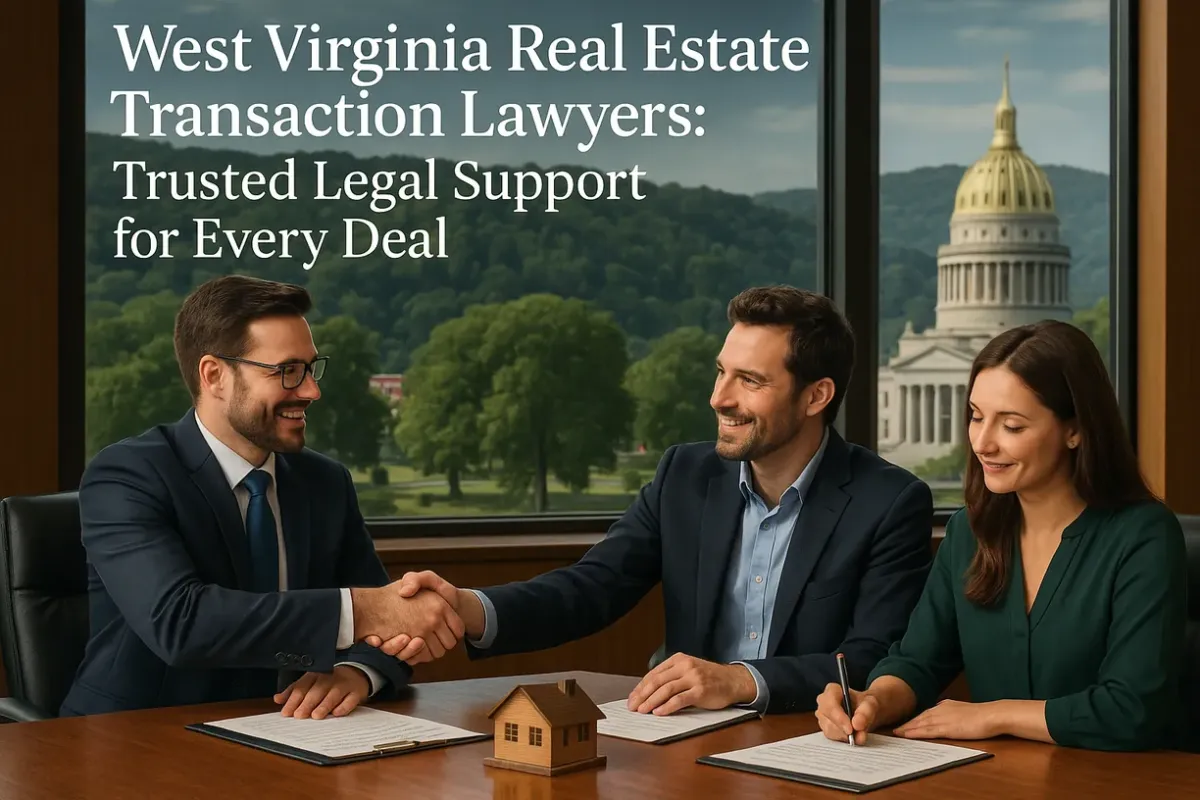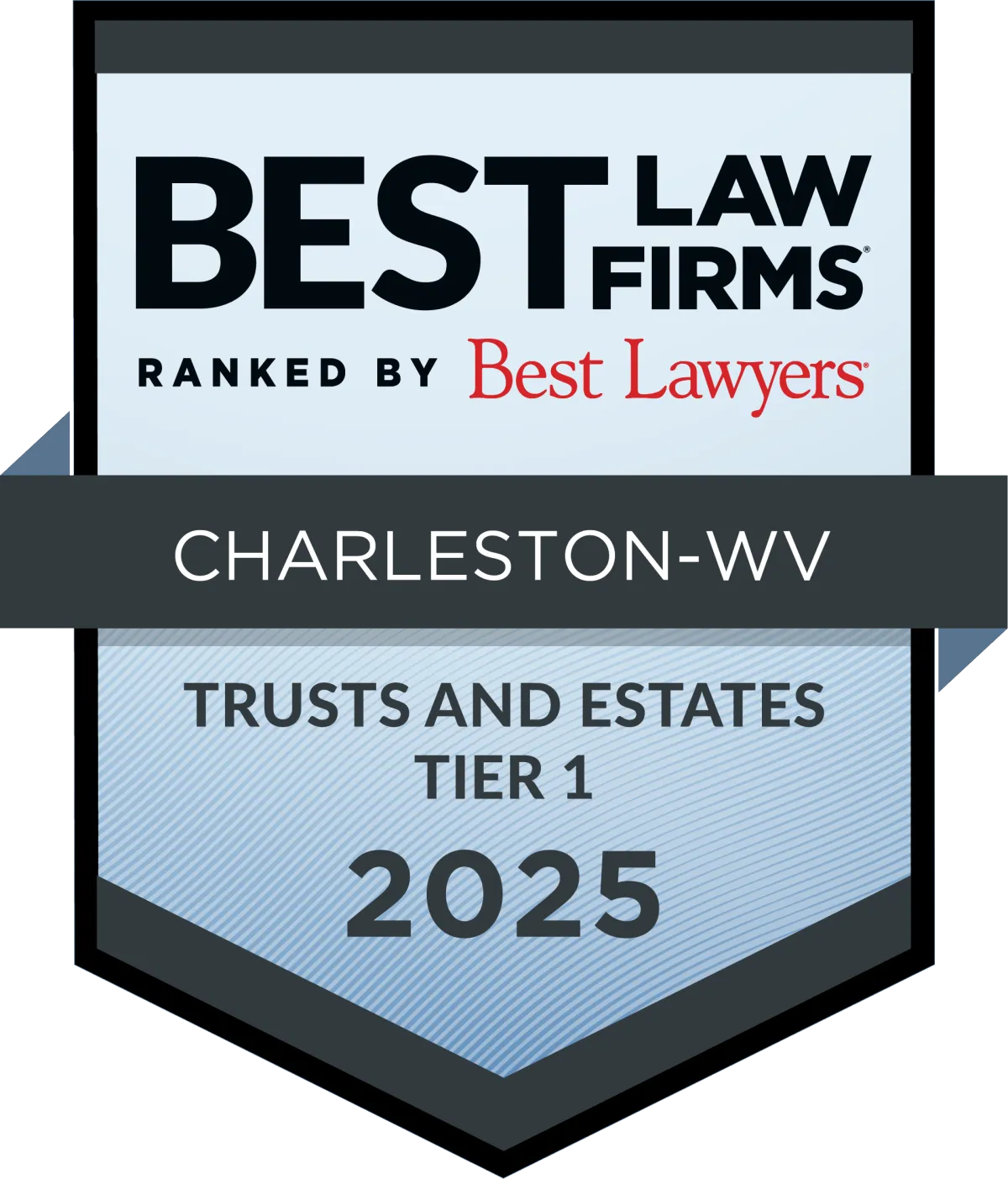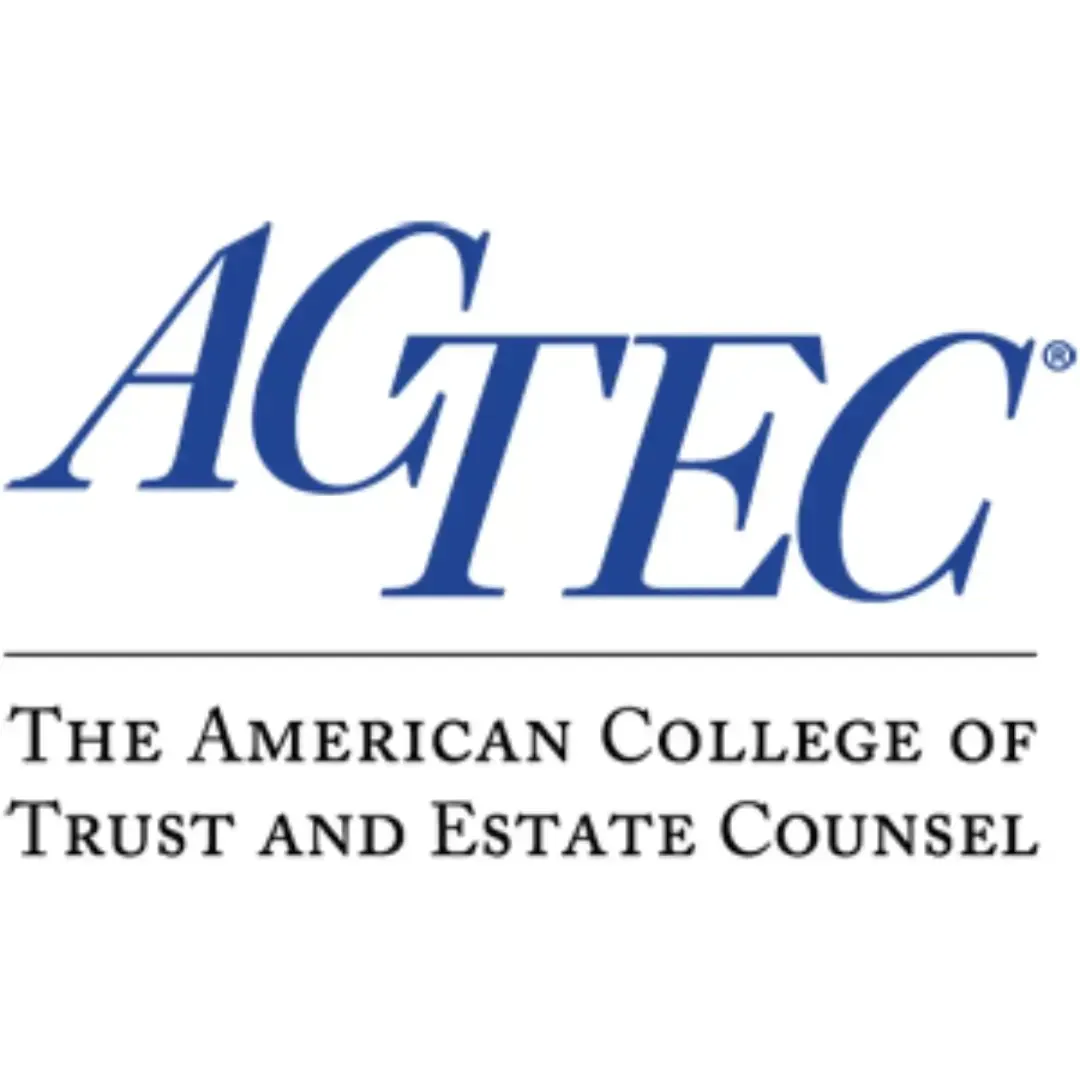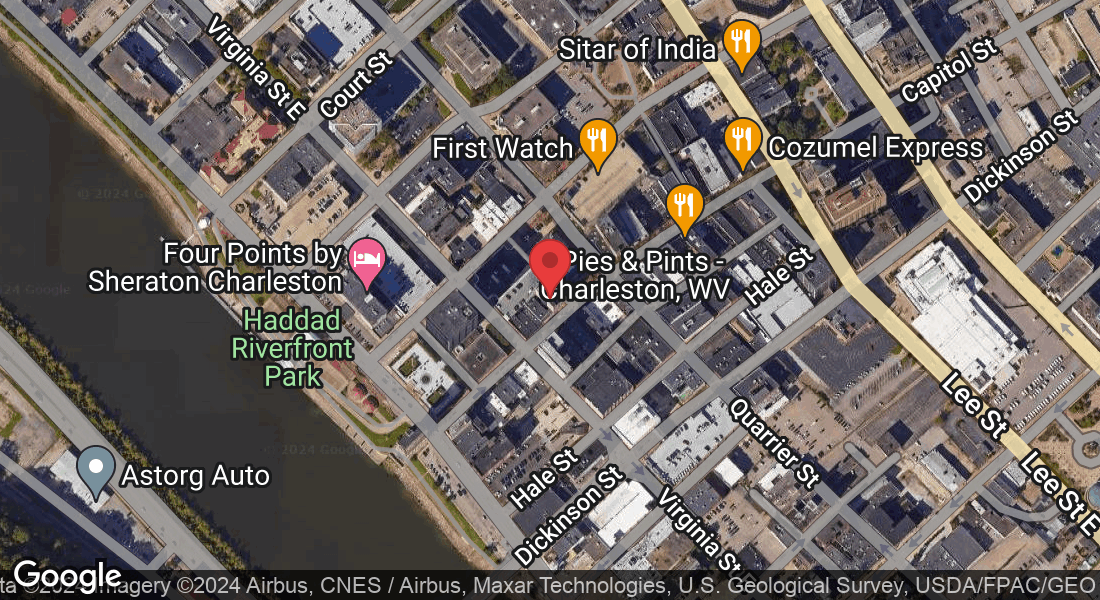
Blogs

West Virginia Real Estate Transaction Lawyers: Trusted Legal Support for Every Deal
Real Estate Transaction Lawyers in West Virginia: Expert Legal Guidance for Buyers, Sellers, and Developers
Navigating real estate transactions in West Virginia requires specialized legal knowledge to protect your interests and ensure compliance with state-specific regulations. Whether you're purchasing your first home, selling investment property, developing commercial real estate, or financing property transactions, experienced legal guidance can make the difference between a smooth process and costly complications. At Ray, Winton & Kelly, our dedicated real estate attorneys provide comprehensive legal services tailored to the unique needs of buyers, sellers, and developers throughout West Virginia.
What Services Do Real Estate Transaction Lawyers in West Virginia Provide?
Real estate transaction lawyers in West Virginia offer a wide range of specialized services designed to protect clients' interests throughout the property acquisition, development, and transfer process. These essential services address the complex legal aspects of real estate transactions that extend far beyond standard paperwork.
How Do West Virginia Property Lawyers Handle Title Searches and Examinations?
Title searches and examinations represent one of the most critical services provided by real estate attorneys in West Virginia. This meticulous process involves researching public records to verify clear ownership and identify any potential issues that could affect property rights. A comprehensive title examination typically includes:
•Reviewing the complete chain of title to confirm proper ownership transfers
•Identifying existing mortgages, liens, judgments, or other encumbrances
•Discovering easements or rights-of-way that might affect property use
•Verifying proper recording of all relevant documents
•Examining tax records to confirm payment status
•Identifying any restrictive covenants or homeowners association requirements
•Checking for pending legal actions that might affect the property
West Virginia property lawyers don't simply identify title issues—they develop effective strategies to resolve them before closing. This might involve working with sellers to satisfy outstanding liens, negotiating with neighboring property owners regarding boundary disputes, or pursuing quiet title actions when necessary to clear complex title problems. Their expertise ensures you receive clear, marketable title to your property, preventing future ownership disputes or limitations on property use.
What Is Included in Contract Review and Negotiation by Real Estate Attorneys WV?
Contract review and negotiation services provided by West Virginia real estate attorneys protect clients from unfavorable terms and ensure their interests are properly represented in transaction documents. This critical service includes:
•Comprehensive analysis of all contract provisions and legal implications
•Identification of ambiguous language that could lead to future disputes
•Verification that all necessary contingencies are included and properly structured
•Review of financing terms and conditions to protect client interests
•Negotiation of favorable terms regarding inspections, repairs, and property condition
•Modification of standard contract language to address specific client concerns
•Development of specialized addenda for unique transaction aspects
•Explanation of complex legal concepts in clear, understandable terms
Experienced attorneys recognize that real estate contracts are not one-size-fits-all documents. They tailor their approach to each client's specific situation, whether representing first-time homebuyers who need additional protections, sophisticated investors with complex financing arrangements, or developers with specialized contingency needs. This personalized approach ensures contracts truly reflect clients' intentions while providing appropriate legal safeguards.
How Do Closing Attorneys in West Virginia Facilitate Smooth Property Transfers?
Closing attorneys play a pivotal role in ensuring real estate transactions conclude successfully with proper transfer of ownership rights. Their comprehensive closing services typically include:
•Coordination with all transaction parties to establish clear timelines and responsibilities
•Preparation and review of all closing documents for accuracy and compliance
•Calculation of precise financial adjustments and prorations
•Verification that all contract contingencies have been properly satisfied
•Oversight of document execution to ensure legal validity
•Management of funds disbursement according to settlement statements
•Coordination of title insurance issuance to protect ownership rights
•Handling of document recording to establish legal ownership
•Resolution of last-minute issues that might otherwise delay closing
West Virginia closing attorneys serve as neutral transaction facilitators while still protecting their clients' specific interests. They anticipate potential complications and develop contingency plans to address them efficiently if they arise. This proactive approach prevents delays and ensures closings proceed smoothly even when unexpected issues emerge. Their expertise proves particularly valuable in complex transactions involving multiple parties, unusual property types, or specialized financing arrangements.
What Legal Documents Do Real Estate Lawyers Prepare in West Virginia?
Real estate transactions involve numerous legal documents that must be properly prepared to ensure valid property transfers and protect all parties' interests. West Virginia real estate attorneys draft and review these essential documents with meticulous attention to detail.
Deeds and Property Transfer Documents
Deeds represent the most fundamental real estate documents, legally transferring ownership from seller to buyer. West Virginia attorneys prepare various deed types depending on transaction specifics:
•General Warranty Deeds: Provide maximum buyer protection by guaranteeing clear title against all claims
•Special Warranty Deeds: Offer limited title guarantees covering only the seller's ownership period
•Quitclaim Deeds: Transfer whatever interest the grantor may have without warranties
•Fiduciary Deeds: Used when property transfers through estate executors or trustees
Proper deed preparation requires precise legal descriptions, appropriate warranty language, and compliance with West Virginia recording requirements. Attorneys ensure these documents accomplish their intended purpose while protecting clients from future title claims or recording problems.
Mortgages and Financing Documents
For financed transactions, attorneys prepare or review various loan documents to protect borrower interests:
•Mortgages or Deeds of Trust: Create security interests in property to protect lenders
•Promissory Notes: Establish repayment terms and borrower obligations
•Loan Agreements: Detail all financing conditions and requirements
•Construction Loan Documentation: Address specialized needs for development projects
Experienced attorneys review these documents to identify potentially problematic terms, ensure consistency with loan commitments, and verify that borrower rights are properly protected. This review proves particularly important for complex financing arrangements or commercial transactions with specialized lending requirements.
Specialized Transaction Documents
Many real estate transactions require additional specialized documents to address specific situations:
•Easement Agreements: Grant specific property use rights while maintaining ownership
•Restrictive Covenants: Establish limitations on property use
•Leases: Define landlord and tenant rights and responsibilities
•Option Agreements: Create rights to purchase property under specific conditions
•Development Agreements: Establish terms for property improvements
•Condominium Declarations: Create condominium ownership structures
•Homeowners Association Documents: Establish community governance and shared responsibilities
These specialized documents require careful drafting to ensure they accomplish their intended purpose while complying with West Virginia law. Experienced attorneys tailor these documents to each transaction's specific requirements, providing customized solutions rather than generic approaches.
Why Choose a Local Real Estate Attorney in West Virginia?
While general legal knowledge applies to many aspects of real estate transactions, working with a local West Virginia attorney provides significant advantages that can directly impact transaction outcomes and client protection.
How Does Local Knowledge Impact Real Estate Transactions in WV?
Local knowledge represents one of the most valuable assets West Virginia real estate attorneys bring to transactions. This specialized expertise includes:
•Regional Regulation Familiarity: Understanding of county-specific recording requirements, local zoning ordinances, and municipal regulations that vary significantly across West Virginia
•Market Practice Awareness: Knowledge of regional customs and practices that influence transaction structures and negotiations
•Title Issue Experience: Familiarity with common title problems in specific areas, such as mineral rights issues in certain counties or access easement complications in rural regions
•Local Resource Networks: Established relationships with surveyors, inspectors, appraisers, and other professionals who may be needed during transactions
•Court System Knowledge: Understanding of local court procedures and precedents if litigation becomes necessary
•Development Regulation Expertise: Awareness of specific permitting processes and development restrictions in different municipalities
•Tax Assessment Insights: Knowledge of local property tax assessment practices and appeal procedures
This local expertise allows attorneys to anticipate and address region-specific challenges that might be overlooked by out-of-area counsel. Their understanding of local nuances often proves invaluable in preventing delays, resolving complications efficiently, and structuring transactions appropriately for specific West Virginia locations.
What Are the Benefits of Personalized Legal Services in West Virginia Real Estate?
Personalized legal services provide significant advantages over standardized approaches, particularly in real estate transactions where each property and client situation presents unique considerations:
•Tailored Risk Assessment: Identification of specific risks based on client circumstances, property characteristics, and transaction details
•Customized Protection Strategies: Development of specialized approaches to address individual client concerns rather than generic solutions
•Accessibility and Responsiveness: Direct communication with attorneys who understand your specific situation and can respond quickly to emerging issues
•Relationship-Based Representation: Ongoing legal support that builds on accumulated knowledge of client needs and preferences
•Flexible Service Models: Ability to provide comprehensive representation or targeted assistance based on client requirements
•Proactive Problem Prevention: Anticipation of potential issues specific to your transaction before they develop into serious problems
•Personalized Communication Style: Information delivery tailored to client preferences and knowledge level
This client-centered approach ensures legal services address your specific needs rather than applying one-size-fits-all solutions. The personalized attention proves particularly valuable for first-time homebuyers who need additional guidance, investors with specialized concerns, or developers with complex project requirements.
How Does Transparent Pricing Work With West Virginia Property Lawyers?
Transparent pricing represents an important aspect of client service provided by reputable West Virginia real estate attorneys. This approach typically includes:
•Clear Fee Structures: Upfront explanation of how legal services will be billed, whether through flat fees, hourly rates, or hybrid approaches
•Comprehensive Cost Estimates: Detailed projections of anticipated legal expenses based on transaction complexity and specific client needs
•Service Scope Definition: Precise explanation of what services are included in quoted fees and what might incur additional charges
•Alternative Fee Arrangements: Flexible pricing options to accommodate different client needs and transaction types
•Regular Billing Updates: Ongoing communication about accruing costs for hourly billing arrangements
•Value-Based Pricing: Fee structures that reflect the value provided rather than simply time spent
•Cost-Saving Recommendations: Suggestions for efficient approaches that maintain quality while controlling legal expenses
This transparency allows clients to budget appropriately for legal services and prevents unpleasant surprises regarding transaction costs. It also demonstrates attorney commitment to client interests beyond simply providing legal expertise. When evaluating potential legal representation, consider not just fee amounts but also the clarity and comprehensiveness of fee explanations.
How Can Real Estate Lawyers Help Resolve Property Disputes in West Virginia?
Property disputes represent some of the most challenging aspects of real estate ownership and transactions. Experienced West Virginia real estate attorneys provide valuable guidance in resolving these conflicts efficiently while protecting client interests.
What Common Real Estate Disputes Occur in West Virginia?
West Virginia property owners and buyers frequently encounter several types of real estate disputes that require legal intervention:
•Boundary Disputes: Disagreements about property lines, often triggered by new surveys that reveal discrepancies between legal descriptions and historical usage patterns
•Title Defects: Challenges to ownership rights based on prior deed errors, undiscovered liens, or competing claims from heirs or previous owners
•Easement Conflicts: Disagreements about access rights, utility easements, or rights-of-way across properties
•Contract Disputes: Conflicts regarding real estate purchase agreements, including contingency enforcement, repair negotiations, or financing failures
•Disclosure Issues: Claims regarding seller failure to disclose known property defects or material information
•HOA Compliance Conflicts: Disagreements with homeowners associations regarding covenant enforcement, fee assessments, or architectural approvals
•Landlord-Tenant Disputes: Conflicts between property owners and renters regarding lease terms, maintenance responsibilities, or security deposits
•Construction Defect Claims: Disputes regarding property improvements, often involving quality issues, contract compliance, or payment disputes
•Zoning and Land Use Conflicts: Disagreements with local authorities or neighbors regarding property use permissions
•Mineral Rights Disputes: Particularly common in certain West Virginia regions, these involve competing claims to subsurface resources
These disputes vary significantly in complexity and potential financial impact. Early legal intervention often prevents escalation and facilitates more efficient resolution than waiting until conflicts become entrenched.
How Do Lawyers Assist in Negotiating and Settling Real Estate Conflicts?
West Virginia real estate attorneys employ various strategies to resolve property disputes effectively while minimizing client costs and relationship damage:
•Fact Investigation: Thorough research to establish the factual basis for claims and defenses, often involving document review, property inspection, and witness interviews
•Legal Analysis: Application of relevant West Virginia property law to determine the strength of various positions and likely outcomes
•Direct Negotiation: Structured discussions with opposing parties to identify potential compromise solutions that address core concerns
•Documentation Review: Careful examination of deeds, surveys, contracts, and other relevant documents to identify resolution opportunities
•Alternative Dispute Resolution: Utilization of mediation or arbitration to resolve conflicts outside formal court proceedings
•Settlement Agreement Drafting: Creation of legally binding documents that formalize negotiated resolutions and prevent future disputes
•Litigation Representation: When necessary, aggressive advocacy in court proceedings to protect client interests
•Creative Solution Development: Identification of non-obvious approaches that might satisfy all parties' essential needs
•Cost-Benefit Analysis: Honest assessment of the financial and practical implications of different resolution strategies
Experienced attorneys recognize that the "best" resolution often involves balancing legal rights against practical considerations like time, expense, and ongoing relationships. They help clients make informed decisions about when to stand firm on principles and when practical compromise better serves their interests.
What Should Buyers and Sellers Know About Closing With a West Virginia Real Estate Attorney?
The closing process represents the culmination of real estate transactions, requiring careful preparation and execution to ensure proper property transfer and protection of all parties' interests. Working with a West Virginia real estate attorney provides important safeguards during this critical phase.
What Are the Steps in a Real Estate Closing Process in West Virginia?
The West Virginia real estate closing process involves several important steps that must be completed in proper sequence:
1.Title Examination: Comprehensive review of property records to verify ownership and identify potential issues
2.Document Preparation: Creation of deeds, affidavits, and other required closing documents
3.Closing Disclosure Review: Verification of financial terms, costs, and credits for accuracy and compliance
4.Final Inspection Coordination: Arrangement of property walk-through to confirm condition before closing
5.Settlement Statement Preparation: Detailed accounting of all financial aspects of the transaction
6.Closing Schedule Coordination: Arrangement of convenient time and location for document signing
7.Fund Collection: Gathering of required payments from buyers and lenders
8.Document Execution: Supervised signing of all required legal documents
9.Fund Disbursement: Distribution of payments to appropriate parties
10.Document Recording: Filing of deed and mortgage documents with county clerk
11.Title Insurance Issuance: Finalization of owner's and lender's title policies
12.Final Document Distribution: Provision of copies to all transaction parties
Experienced closing attorneys manage this process efficiently while ensuring all legal requirements are satisfied. They anticipate potential complications and develop contingency plans to address them if they arise, preventing last-minute delays or problems that could jeopardize transactions.
How Does a Closing Attorney Protect Buyer and Seller Interests?
Closing attorneys provide essential protections for both transaction sides through various specialized services:
For Buyers:
•Verification that property title is clear and marketable
•Confirmation that all seller disclosures are complete and accurate
•Review of loan documents to ensure compliance with agreed terms
•Coordination of title insurance to protect against ownership claims
•Verification that all contract contingencies have been properly satisfied
•Confirmation that property condition meets contractual requirements
•Assurance that all necessary documents are properly executed
•Protection against seller liens or judgments affecting the property
For Sellers:
•Verification that buyers have secured required financing
•Confirmation that earnest money is properly credited
•Assurance that all seller proceeds are accurately calculated
•Protection against future claims through proper disclosures
•Verification that all existing mortgages and liens are satisfied
•Confirmation that deed transfers only the agreed property interests
•Assurance that tax prorations are accurately calculated
•Protection against improper document recording or transfer
These protections prove particularly valuable when complications arise during closing, such as last-minute title issues, financing problems, or disputes about property condition. Experienced attorneys address these challenges efficiently while ensuring their clients' interests remain protected throughout the resolution process.
What Are Typical Closing Costs and Fees in West Virginia Real Estate Transactions?
Understanding typical closing costs helps buyers and sellers budget appropriately for real estate transactions. In West Virginia, these costs generally include:
Attorney Fees:
•Residential closing representation: 500−1,500 depending on complexity
500
−
500-
•Commercial transaction representation: 1,500−5,000+ based on property value and complexity
1
,
500
−
1,500-
•Title examination services: 300−800 depending on property type and history
300
−
300-
•Document preparation: 200−500 for standard closing documents
200
−
200-
Title-Related Expenses:
•Title insurance premiums: 3.50−5.00 per thousand dollars of coverage
3.50
−
3.50-
•Title search fees: 200−500 depending on property complexity
200
−
200-
•Recording fees: 20−50 per document filed with county clerk
20
−
20-
•Transfer tax: 1.10−2.20 per $500 of property value (varies by county)
1.10
−
1.10-
Other Common Costs:
•Survey expenses: 350−1,000+ depending on property size and complexity
350
−
350-
•Home inspection fees: 300−600 for standard inspections
300
−
300-
•Appraisal costs: 400−800 for residential properties
400
−
400-
•Escrow/settlement fees: 300−600 when using separate settlement agents
300
−
300-
•Loan origination fees: Typically 0.5%-1% of loan amount
These costs vary based on property value, transaction complexity, and specific services required. A transparent attorney will provide detailed cost estimates during initial consultations, helping clients understand the full financial implications of their transactions. Many closing costs are negotiable between buyers and sellers, and experienced attorneys can advise on typical allocation practices in different West Virginia regions.
How to Choose the Right Residential Real Estate Attorney in West Virginia?
Selecting the right attorney for your residential real estate transaction represents an important decision that can significantly impact your experience and outcome. Several key considerations can help guide this selection process.
What Qualifications and Experience Should You Look for in a WV Property Lawyer?
When evaluating potential real estate attorneys in West Virginia, consider these important qualifications and experience factors:
•Specialized Practice Focus: Look for attorneys who concentrate specifically on real estate law rather than general practitioners who handle occasional property transactions. Specialists typically offer deeper expertise in addressing complex issues.
•Transaction Volume: Consider how many similar transactions the attorney handles annually. Higher volume generally indicates greater familiarity with current practices and potential complications.
•Property Type Experience: Verify that the attorney has specific experience with your property type, whether single-family residential, condominium, rural land, or specialized property categories.
•Local Market Knowledge: Prioritize attorneys with extensive experience in your specific West Virginia region, as local regulations and practices vary significantly across the state.
•Educational Background: Review the attorney's legal education and any specialized training or certifications in real estate law or related fields.
•Professional Associations: Membership in real estate-focused legal organizations often indicates commitment to staying current with industry developments and best practices.
•Years of Practice: Consider the attorney's overall experience level, recognizing that seasoned practitioners typically bring valuable perspective while newer attorneys might offer different advantages.
•Support Staff Resources: Evaluate whether the attorney has adequate paralegal and administrative support to handle transactions efficiently.
•Technology Integration: Consider how the attorney uses technology to enhance service delivery, document management, and client communication.
•Problem-Solving History: Ask about experience resolving complicated title issues, contract disputes, or other complex transaction challenges.
While credentials and experience provide important indicators, also consider how well the attorney's approach and communication style align with your preferences. The most qualified attorney on paper may not be the best fit if their working style conflicts with your expectations.
How Can Client Reviews and Testimonials Help in Selecting a Real Estate Lawyer?
Client reviews and testimonials offer valuable insights that credentials alone cannot provide. When evaluating this feedback, consider:
•Consistency Across Platforms: Look for patterns in reviews across multiple sources rather than focusing on isolated comments. Consistent themes typically provide more reliable indicators of strengths and weaknesses.
•Specific Experience Details: The most helpful reviews typically mention concrete aspects of the attorney's service, such as communication frequency, problem-solving abilities, or attention to detail.
•Similar Transaction Types: Focus particularly on reviews from clients with similar transaction types to yours, as their experiences most likely reflect what you might expect.
•Response to Challenges: Pay attention to how attorneys handled unexpected complications or problems, as these situations often reveal true service quality.
•Communication Feedback: Note comments about attorney accessibility, responsiveness, and ability to explain complex concepts clearly, as these factors significantly impact client experience.
•Value Assessment: Consider whether reviewers felt the services provided justified the fees charged, recognizing that lowest cost rarely equals best value in legal services.
•Professional Responses: How attorneys respond to reviews, particularly critical ones, often reveals much about their client service philosophy and professionalism.
While online reviews provide helpful starting points, also consider requesting direct references from attorneys you're seriously considering. Speaking directly with past clients often provides more nuanced insights than written reviews alone.
What Questions Should You Ask During a Consultation With a West Virginia Real Estate Attorney?
Initial consultations provide valuable opportunities to assess attorney fit before making hiring decisions. Consider asking these important questions:
•"How many similar transactions have you handled in the past year?" This reveals current experience level with your specific transaction type.
•"What percentage of your practice focuses specifically on real estate matters?" Higher percentages typically indicate greater specialization and expertise.
•"What potential complications do you anticipate in my transaction based on the information I've provided?" This tests the attorney's ability to identify potential issues proactively.
•"How do you typically communicate with clients during transactions, and how quickly can I expect responses to questions?" This clarifies communication expectations.
•"Who else in your office might work on my transaction, and what are their qualifications?" This reveals whether your matter might be delegated to less experienced staff.
•"What is your fee structure, and what specific services are included in your quoted fees?" This prevents misunderstandings about costs and service scope.
•"What distinguishes your services from other real estate attorneys in the area?" This reveals how the attorney positions their practice and perceived strengths.
•"Can you provide examples of how you've successfully resolved unexpected issues in similar transactions?" This tests problem-solving capabilities and experience.
•"What timeline do you anticipate for my transaction, and what factors might cause delays?" This establishes realistic expectations about the process.
•"What specific steps can I take to help ensure my transaction proceeds smoothly?" This reveals the attorney's approach to client collaboration.
Pay attention not just to the content of responses but also to communication style, listening skills, and whether the attorney takes time to understand your specific concerns rather than providing generic answers.
What Legal Advice Do West Virginia Real Estate Attorneys Offer for Property Investments?
Property investments involve unique legal considerations that extend beyond standard residential transactions. Experienced West Virginia real estate attorneys provide specialized guidance to help investors maximize returns while minimizing legal risks.
How Can Lawyers Assist With Due Diligence in West Virginia Real Estate Deals?
Due diligence—the comprehensive investigation of property before purchase—represents one of the most critical phases of real estate investment. West Virginia attorneys provide valuable assistance throughout this process:
•Title Examination Oversight: Coordination and analysis of thorough title searches to identify ownership issues, liens, easements, or restrictions that might affect property value or usability
•Survey Review: Analysis of property surveys to verify boundaries, identify encroachments, and confirm that physical characteristics match legal descriptions
•Zoning and Land Use Verification: Investigation of current zoning classifications, permitted uses, and potential regulatory changes that might affect future property value or development potential
•Environmental Assessment Coordination: Arrangement and review of appropriate environmental investigations based on property history and intended use, particularly important for commercial or previously developed properties
•Document Analysis: Review of leases, service contracts, warranties, and other documents that might transfer with the property or affect its operation
•Permit and Certificate Verification: Confirmation that all necessary permits, certificates of occupancy, and regulatory approvals are in place and transferable
•Tax Assessment Review: Analysis of current property tax assessments and potential for future changes based on purchase price or planned improvements
•Legal Compliance Verification: Investigation of potential legal issues such as building code violations, unauthorized improvements, or non-conforming uses
•Homeowners Association Review: For properties in planned communities, analysis of association documents, financial stability, and potential assessment increases
•Contingency Development: Creation of appropriate contract contingencies that allow for thorough investigation while protecting the right to withdraw if significant problems are discovered
This comprehensive approach helps investors make informed decisions based on complete information rather than assumptions or seller representations alone. The relatively modest cost of thorough due diligence typically represents a small fraction of the investment value while providing protection against risks that could result in significant financial losses.
What Are Key Legal Considerations for Residential vs. Commercial Property Transactions?
Residential and commercial property transactions involve different legal considerations that require specialized expertise:
Residential Transaction Considerations:
•Consumer protection regulations that impose specific disclosure requirements
•Financing contingencies and mortgage approval processes
•Property condition disclosure requirements
•Homeowners association governance and restrictions
•Occupancy timing and possession arrangements
•Residential zoning compliance and permitted uses
•Homestead exemption and tax considerations
•Lead-based paint and environmental disclosures for older properties
Commercial Transaction Considerations:
•More complex due diligence requirements
•Sophisticated financing arrangements often involving multiple funding sources
•Assignment of existing leases and tenant relationships
•Service contract transfers and vendor relationships
•Environmental liability concerns, particularly for previously developed properties
•Zoning compliance for specific business operations
•Americans with Disabilities Act compliance requirements
•More extensive title issues, often involving multiple parcels or complex ownership histories
•Tax implications, including potential reassessment triggers and depreciation considerations
These differences highlight why attorneys often specialize in either residential or commercial transactions. When selecting representation, ensure your attorney has specific experience with your transaction type rather than assuming all real estate legal services are interchangeable.
How Do West Virginia Real Estate Lawyers Support Developers and Lenders?
Developers and lenders face unique legal challenges that require specialized expertise beyond standard transaction representation. Experienced West Virginia real estate attorneys provide tailored services to address these specific needs.
What Legal Services Are Essential for Real Estate Developers in West Virginia?
Real estate developers require comprehensive legal support throughout the development process, from initial land acquisition through project completion and sales:
•Entity Formation and Structuring: Creation of appropriate legal entities to hold property, limit liability, and optimize tax treatment for development projects
•Land Acquisition Services: Contract negotiation, due diligence coordination, and closing representation for property purchases
•Land Use and Zoning Assistance: Navigation of rezoning processes, variance applications, conditional use permits, and other regulatory approvals
•Development Agreement Negotiation: Creation and negotiation of agreements with local governments regarding infrastructure improvements, impact fees, and development conditions
•Environmental Compliance: Guidance regarding environmental regulations, permitting requirements, and potential remediation obligations
•Construction Contract Development: Creation and negotiation of agreements with architects, engineers, general contractors, and subcontractors
•Financing Coordination: Assistance with securing and documenting development loans, investor agreements, and other funding arrangements
•Subdivision and Condominium Creation: Legal work to create subdivided lots or condominium units, including preparation of master deeds, declarations, and governing documents
•Homeowners Association Establishment: Creation of association governance structures, covenants, conditions, and restrictions
•Sales Documentation: Development of purchase agreements, disclosures, and closing documents for completed units
•Dispute Resolution: Representation in addressing construction defect claims, contract disputes, or regulatory compliance issues
This comprehensive support helps developers navigate complex legal requirements while minimizing risk and maximizing project value. Experienced development attorneys anticipate potential issues and address them proactively, preventing costly delays or complications that could threaten project viability.
How Do Real Estate Attorneys Assist Lenders in Property Transactions?
Lenders require specialized legal services to protect their interests in financed real estate transactions:
•Loan Document Preparation: Creation of mortgages, deeds of trust, promissory notes, and other security instruments that properly protect lender interests
•Title Review and Insurance Coordination: Analysis of title examinations to identify potential issues affecting collateral value and coordination of appropriate title insurance coverage
•Regulatory Compliance Verification: Confirmation that loan documentation meets all applicable federal and state requirements, including consumer protection regulations for residential loans
•Closing Oversight: Representation at settlement to ensure proper document execution and recording priority
•Security Interest Perfection: Proper recording of mortgages and filing of UCC financing statements to establish priority against other creditors
•Due Diligence Review: Independent verification of property value, condition, and legal status to confirm appropriate collateral quality
•Environmental Risk Assessment: Evaluation of potential environmental liabilities that could affect collateral value or create lender liability
•Construction Loan Administration: Oversight of draw processes, lien waiver collection, and project progress monitoring for development loans
•Workout and Foreclosure Services: Representation in addressing defaulted loans through negotiated workouts, deed-in-lieu arrangements, or formal foreclosure proceedings
•REO Management: Legal support for managing and disposing of real estate owned after foreclosure
These specialized services help lenders manage risk effectively while maintaining regulatory compliance. Experienced real estate attorneys understand both the legal and business aspects of lending transactions, allowing them to provide practical guidance that protects lender interests while facilitating appropriate financing arrangements.
Securing Your Real Estate Success With Expert Legal Guidance
Real estate transactions in West Virginia involve significant financial commitments and complex legal considerations that deserve professional protection. Whether you're buying your first home, selling investment property, developing commercial real estate, or financing property transactions, experienced legal guidance ensures your interests remain protected throughout the process.
At Ray, Winton & Kelly, our dedicated real estate attorneys provide comprehensive legal services tailored to the unique needs of buyers, sellers, developers, and lenders throughout West Virginia. We combine deep legal knowledge with practical problem-solving skills to address challenges efficiently and protect your interests effectively.
Our client-centered approach ensures you receive personalized attention and customized solutions rather than generic legal services. We focus on understanding your specific goals and concerns, then developing strategies that address your particular situation while providing maximum legal protection.
Contact us today to discuss how our experienced real estate attorneys can support your specific transaction needs and objectives. With proper legal guidance, you can approach your real estate matters with confidence, knowing your interests are protected by dedicated professionals committed to your success.
If you're in need of legal help, let's talk.
Our lawyers have many years of experience, and are excited to help you with your case. Whatever your legal needs may be, we can provide the experienced legal representation you require. Let's talk about your case and see how we can help you achieve the best possible outcome. Even in circumstances in which we are unable to represent a person, we can often help find another attorney that can. So make us your first contact.
Get In Touch
Phone Number:
Address
109 Capitol Street Suite 700
Charleston, WV 25301
Assistance Hours
Mon – Fri 9:00am – 5:00pm
Saturday – Sunday CLOSED







